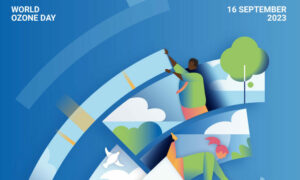Newsletter 12 Sep 2022
Environment: What’s Up in GENeva | 12 – 18 September 2022

The Geneva Environment Network’s weekly newsletter includes the latest information on the global environmental agenda, main events, job vacancies, learning opportunities, as well as other useful resources and updates. Stay tuned and follow us also on Twitter, Facebook, LinkedIn, Youtube, or visit our website regularly for additional updates.
Environment @ 51st Session of the Human Rights Council
This week marks the start of the 51st session of the Human Rights Council (HRC51), running until 7 October, which will discuss various environment-related issues. → Our update on HRC51 provides the latest news and highlights the environmental-related activities of this session. On the Agenda this week:
- HRC51 Side Event | Implementing the human right to a clean, healthy and sustainable environment | 12 September 2022 | 17:00 – 18:00 CEST | Palais des Nations, Room XXV & Online | Costa Rica, Maldives, Slovenia, Switzerland
- HRC51 Side Event | Geoengineering & Human Rights | 13 September 2022 | 12:00 – 13:00 CEST | Room XXV, Palais des Nations | CIEL, EarthJustice, QUNO, Soka Gakkai International, Third World Network and ETC Group
- HRC51 Side Event | Human Rights & Climate Change | 14 September 2022 | 11:00 – 12:00 CEST | Room XXV, Palais des Nations | China NGO Network for International Exchanges (CNIE)
- Interactive Dialogue with SR on water and sanitation | 14 September 2022 | 11:30 – 13:00 CEST
- HRC51 Side Event | Promoting and Protecting the Right to a Clean, Healthy and Sustainable Environment | 14 September 2022 | 19:00 – 20:30 CEST | Geneva Academy & Online | Geneva Academy, the Permanent Missions of Switzerland and Slovenia to the UN in Geneva, Franciscans International, CIEL and EarthJustice
- HRC51 Side Event | Child Rights & Climate Change at COP27 and Beyond |15 September 2022 | 13:00 – 14:00 CEST | Room XXV, Palais des Nations | Egypt and Child Rights Connect
- HRC51 Side Event | The human rights to safe drinking water and sanitation of indigenous peoples: state of affairs and lessons from ancestral cultures | 15 September 2022 | 16:00 CEST | Palais des Nations & Online | SR Water and Sanitation, SR Indigenous People
Toxics and human rights is an important theme of the Council’s September sessions, with the Special Rapporteur’s annual Report to the HRC, to be presented next week during the interactive dialogue. In parallel to the council, the Geneva Toxic Free Talks aim to harness this opportunity of this moment of the year to reflect on the challenges posed by the production, use and dissemination of toxics and on how Geneva contributes to bringing together the actors working in reversing the toxic tide. This year the talks will take place on 21 and 22 September.
Last week, the UN Secretary-General announced the appointment of Volker Türk of Austria as the next High Commissioner for Human Rights, following the General Assembly’s approval. His predecessor, Michelle Bachelet, was a vocal and eloquent advocate for the recognition and implementation of the right to a clean, healthy and sustainable environment, as warmly acknowledged by the environmental community.
Advancing Chemicals, Waste and End Pollution Negotiations
This week, a new Chemicals and Waste Briefing, organized within the framework of the Geneva Environment Network, will provide an overview of the status of the negotiations related to chemicals and waste and present the latest information on the important conferences scheduled in the second half of 2022 and in 2023, including:
- 4th meeting of the Intersessional Process considering the Strategic Approach and sound management of chemicals and waste beyond 2020 | 29 August to 2 September 2022, Bucharest, Romania
- 1st Session of the Open Ended Working Group (OEWG1) of the Science-Policy Panel to contribute further to the sound management of chemicals and waste and to prevent pollution | Nairobi and online, October 2022 and 2023
- 16th Meeting of the COP to the Basel Convention, the 11th meeting of the COP to the Rotterdam Convention and the 11th Meeting of the COP to the Stockholm Convention (BRS COPs) | Geneva, May 2023, as well as subsidiary body meetings leading up to the BRS COPs
- 5th Session of the International Conference on Chemicals Management (ICCM5) | Bonn, Germany, September 2023
- 5th Meeting of the Conference of the Parties to the Minamata Convention on Mercury | Geneva, October-November 2023
→ Register to join us in person at the International Environment House or online on Webex the heads of Secretariats and their teams on 13 September at 10.00 CEST.
Ozone Layer: Success of Multilateralism and Global Cooperation
On Friday 16 September we celebrate the International Day for the Preservation of the Ozone Layer / World Ozone Day. The date commemorates the adoption of the Montreal Protocol in 1985 when governments, scientists and industry worked together to cut 99% of all ozone-depleting substances. Thanks to the Montreal Protocol, the ozone layer is healing and expected to return to pre-1980 values by mid-century.
As the Montreal Protocol treaty turns 35 on this year’s World Ozone Day, the international community will remember how the Montreal Protocol ended one of the biggest threats ever to face humanity as a whole: the depletion of the ozone layer. When the world found out that ozone-depleting gases used in aerosols and cooling were creating a hole in the sky, they came together. They showed that multilateralism and effective global cooperation worked and they phased out these gases. Now the ozone layer is healing, allowing it once again to shield humanity from the sun’s ultraviolet radiation. → Our Update on this world day lists various resources and relevant information.
The Climate Crisis
Europe: Hottest Summer on Record and Deglaciation
The World Meteorological Organization reported last Friday that Europe had just had its hottest summer and hottest August on record, according to the European Union’s Copernicus Climate Change Service. The August temperature was 0.8°C above August 2018, and summer was 0.4°C warmer than June-August 2021. Devastating wildfires across Europe this summer caused the highest emissions since 2007. The combination of August’s heatwave with prolonged dry conditions across western Europe resulted in increased wildfire activity, intensity and persistence. The heat, drought and low snowpack after winter has taken its toll on Alpine glaciers. In addition to heatwaves in Europe, there were also heatwaves over central and eastern China for all three summer months. Globally it was the joint third warmest on record, according to Copernicus.
The head of the Swiss Glacier Monitoring Network, Matthias Huss, tweeted last week “The speed of deglaciation in the Alps is hard to accept: within just two months, a mountain pass at Les Diablerets, Western Switzerland, ice-covered for several thousand years, had become ice-free. The summer of 2022 has shifted the realities for Alpine glaciers.” WMO’s Global Cryosphere Watch network is monitoring the situation. Glacier mass is one of the key climate change indicators factored in to WMO’s State of the Climate reports. The State of Climate in Africa report released last week, indicates that climate change has caused African glaciers (in Kenya, Tanzania and Uganda) to retreat to less than 20% of late 19th-century extent. They may melt completely within a generation.
Climate Tipping Points
The article “Exceeding 1.5°C global warming could trigger multiple climate tipping points” published in Science last week, provides strong scientific evidence for urgent action to mitigate climate change. Even the Paris Agreement goal of limiting warming to well below 2°C and preferably 1.5°C is not safe as 1.5°C and above risks crossing multiple tipping points which may lead to abrupt, irreversible, and dangerous impacts with serious implications for humanity. Armstrong McKay et al. present an updated assessment of the most important climate tipping elements and their potential tipping points, including their temperature thresholds, time scales, and impacts. Last May, the Geneva Environment Network hosted the session “Climate Tipping Points, Irreversibility and their Consequences for Society, Environment and Economies as Switzerland is proposing for an IPCC Special Report on Climate Tipping Points.
Loss and Damage
During his visit to Pakistan last week in solidarity with the people of the country following the destruction caused by this year’s devastating flood, the UN Secretary General warned that loss and damage from the climate crisis is not a future event, “it is happening now, all around us,” and he urged governments to address this issue at COP 27 with the seriousness it deserves. → Read press release
Last week, over 400 organizations from all over the world have signed a letter, initiated by Climate Action Network, addressed to UN climate change Heads of Delegations calling on them to ensure that Loss and Damage finance is on the formal agenda for COP27.
The UN Special Rapporteur on Human Rights and Climate Change, Ian Fry, will deliver his first report to the UN General Assembly, calling out inaction by States to uphold their legal obligations – in particular largest emitters of greenhouse gases and Western States opposing adequate progress on loss and damage. The report focuses in particular on three dimension: mitigation (the Special Rapporteur denounces atmospheric colonialism by historic polluters), loss and damage (with many specific recommendations regarding urgently needed steps) and participation (with a strong focus on effective participation of youth to remedy what the Special Rapporteur describes as a “participation disconnect”).
Support for Fossil Fuels Almost Doubled in 2021
New data released by OECD and IEA in August show that overall government support for fossil fuels in 51 countries worldwide almost doubled to 697.2 USD billion in 2021, from 362.4 USD billion in 2020, as energy prices rose with the rebound of the global economy. In addition, consumption subsidies are anticipated to rise even further in 2022 due to higher fuel prices and energy use. The OECD and IEA have consistently called for the phasing out of inefficient fossil fuel support and re-direction of public funding toward the development of low-carbon alternatives alongside improvements in energy security and energy efficiency. Subsidies intended to support low-income households often tend to favour wealthier households that use more fuel and energy and should therefore be replaced with more targeted forms of support. → Read IEA and OECD press release
United in Science
The 2022 edition of the United in Science report – compiled by the World Meteorological Organization on behalf of the United Nations Secretary General to bring together the latest climate science related updates from a group of key global partner organizations – will be released this week. Professor Petteri Taalas will hold a press conference on Tuesday, 13 September at 15:30 CEST. The report provides an overview of the most recent science related to climate change, impacts and responses.
Transition to Clean Energy Creates New Jobs
Global employment in the energy sector has risen above its pre-pandemic levels, led by increased hiring in clean energy, according to the new IEA annual report “World Energy Employment Report“ offering the first worldwide benchmark for employment across energy industries. In all IEA scenarios, clean energy employment is set to grow, outweighing declines in fossil fuels jobs. In the Net Zero Emissions by 2050 Scenario, 14 million new clean energy jobs are created by 2030, while another 16 million workers switch to new roles related to clean energy. New energy jobs may not always be in the same location nor require the same skills as the jobs they replace, requiring policy makers to focus on job training and capacity building to ensure that energy transitions benefit as many people as possible. → Read IEA press release
Happening Abroad | 77th Session of the UN General Assembly
This Monday, Abdulla Shahid of the Maldives, will close the 76th session of the UN General Assembly, and Csaba Kőrösi of Hungary will take on the mantle for the next twelve months. The 77th session will start on Tuesday afternoon, with the first plenary. Many actors from international Geneva will be involved in the events taking place in New York in the coming weeks. Kicking off this week:
- Transforming Education Summit | 16-19 September 2022
A Leaders Day will be held on Monday 19 September. Summit engagement days will be held on Friday 16 September (Mobilization Day) and Saturday 17 September (Solutions Day). - Global Goals Week | 16-25 September 2022
Shared commitment between 170+ partners across civil society, business, academia, and the UN system to accelerate action on the Sustainable Development Goals (SDGs), especially during the UN General Assembly High-level Week.
What (Else) Should I Read or Watch Next?
- Marchands de sable : enquête sur l’exploitation effrénée d’une ressource stratégique | Le Monde | 4 September 2022
Des rives du Gange aux fjords du Groenland, en passant par les chantiers d’Ile-de-France, « Le Monde » s’est rendu dans six pays pour saisir les enjeux écologiques et sociaux de ce matériau incontournable, deuxième ressource la plus exploitée dans le monde. - Call to Action to Central Banks and Financial Supervisors to Ensure Transition to a Net Zero and Nature Positive Economy | WWF
Launched on 7 September by WWF alongside more than 90 organisations including UNEP FI, EEB, Climate Alliance Switzerland, and various Swiss-based NGOs (Grands-parents pour le climat, fossil-free.ch, myblueplanet, etc). - Le tri des déchets devient obligatoire à Genève | TDG | 2 September 2022
Details de la nouvelle loi.
Events
See all
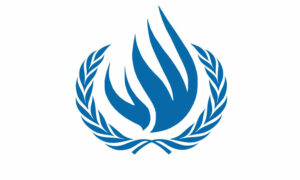
Body Meeting
51st Session of the Human Rights Council | HRC51
12 Sep – 07 Oct 2022
Palais des Nations
HRC
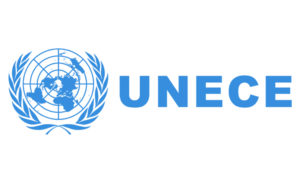
Body Meeting
8th Joint Session of the EMEP Steering Body and Working Group on Effects
12 – 16 Sep 2022
Room XVII, Palais des Nations
UNECE Convention on Long-Range Transboundary Air Pollution
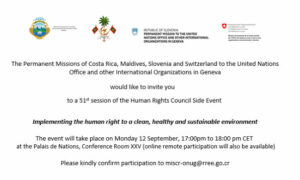
Conference
HRC51 Side Event | Implementing the human right to a clean, healthy and sustainable environment
12 Sep 2022 17:00 – 18:00
Place des Nations | Room XXV & Online | Webex
Costa Rica, Maldives, Slovenia, Switzerland
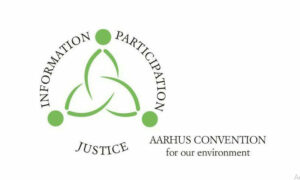
Body Meeting
76th meeting of the Aarhus Convention Compliance Committee
13 – 16 Sep 2022
Palais des Nations | Room XXVII
Aarhus Convention


Conference
Chemicals and Waste Negotiations Briefing
13 Sep 2022 10:00 – 12:00
International Environment House I, Room 3 & Online | Webex
GEN, UNEP Chemicals and Health Branch, BRS, Minamata Convention on Mercury, SAICM

Conference
HRC51 Side Event | Geoengineering & Human Rights
13 Sep 2022 12:00 – 13:00
Palais des Nations | Room XXV & Online | Webex
CIEL, Earthjustice, QUNO

Conference
Forum Mobilité | La conquête de l’espace
14 Sep 2022 16:30 – 20:00
Campus HEAD, Genève
Le Temps
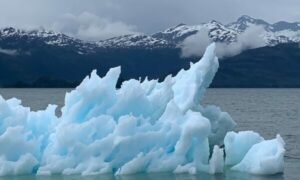
Conference
HRC51 Side Event | Promoting and protecting the right to a clean, healthy and sustainable environment
14 Sep 2022 19:00 – 20:30
Geneva Academy & Online
Geneva Academy
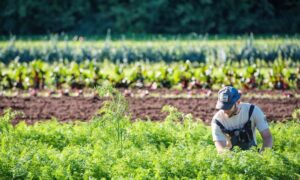
Conference
Agroecology Dialogue Series | Beyond the farm: Exploring the synergies between the agroecology and conservation communities
15 Sep 2022 09:00 – 17:00
Online & Geneva
FAO

Body Meeting
Geneva SDG Community | 2022 Annual Meeting
15 Sep 2022 14:00 – 16:00
Palais des Nations
Geneva 2030 Ecosystem
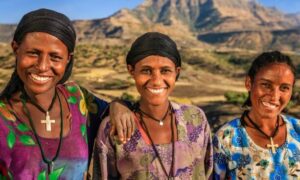

Afterwork
4ème Rentrée des Associations | Pas de Démocratie sans expression(s) associative(s)
15 Sep 2022 17:30
Rue des Savoises 15, Geneva
Maison Internationale des Associations
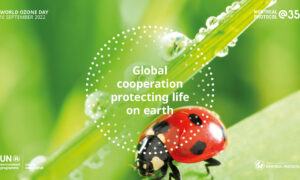


Body Meeting
Urban Forest Policy Roundtable | 4th Meeting of the Informal Network of Experts on Sustainable Urban Forestry
16 Sep 2022 15:00 – 17:00
UNECE
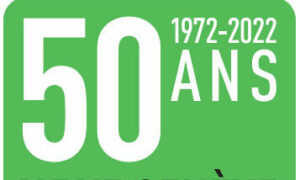
Jobs
See all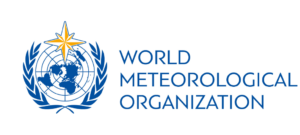
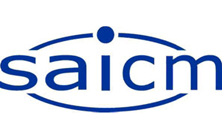


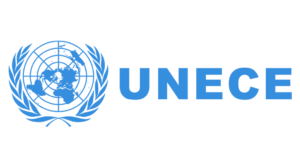
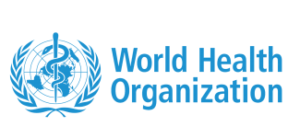
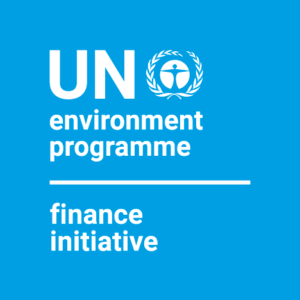

Professional
Director of Learning Programs
16 Sep 2022
Geneva Sustainability Centre – powered by the IHF







